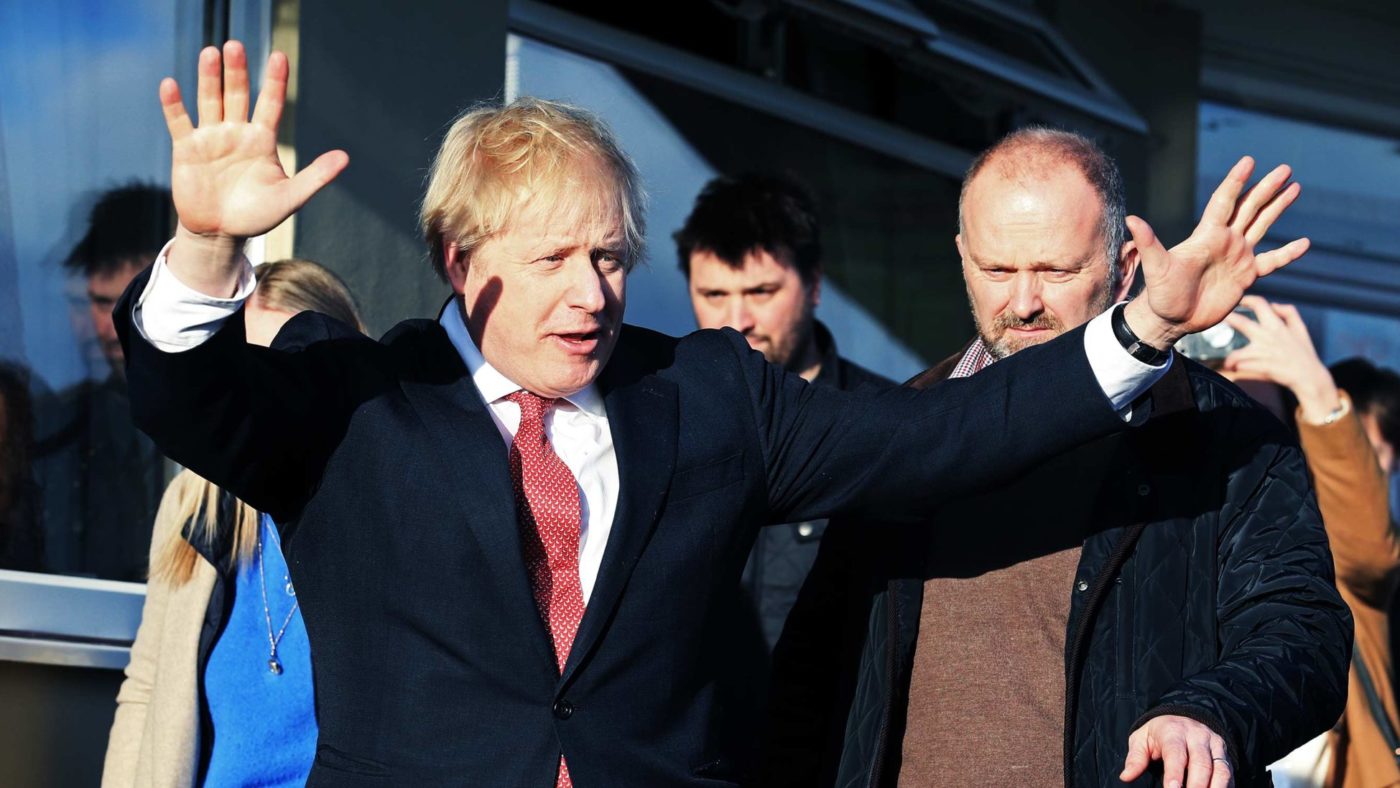Boris Johnson’s stonking majority means the coming five years will finally answer a long-disputed riddle: how free-market on economics is the modern Conservative Party?
Overhanging most of the past two decades has been the long shadow of Thatcherism, and disputes on where the party’s economic platform should go next. At various times, “dries” – those advocating restraint on spending, more tax cuts and light-touch regulation – have seemed ascendant. At others, a “One Nation” preference for higher public service spending and interventions to curb market excesses or “share” growth have seemed dominant. In recent years the lack of a parliamentary majority, combined with “events, dear boy, events,” made it near impossible to pin down the party’s true centre of gravity.
David Cameron and George Osborne’s deficit reduction agenda, for example, was described by some as “more Thatcherite than Thatcher”. It suited both the left and some in that government to claim the party would have been more free market were it not for the constraints of coalition with the Lib Dems.
Yet prior to the financial crash, the Tories had signed up to Gordon Brown’s expansive spending plans and seemed uninterested in economics. Their rhetoric on spending even after 2010 was more about fiscal repair than shrinking the state. Post-2015, of course, the EU referendum swallowed politics. We never really got to see an economic vision (if, indeed, they had one).
Theresa May and her adviser Nick Timothy clearly desired a more interventionist state. They not only declared “an end to austerity”, but pledged a re-regulation of the labour market, an expansive industrial strategy, an energy price cap, and curbing immigration. But on spending even they appeared caught in two minds – wanting to end the squeeze in principle, while keeping a tight leash on the public finances in practice. Losing the majority in 2017 meant their economic agenda sank anyway as Brexit difficulties grew.
Now, the party under Johnson finds itself with several degrees of freedom for the first time this decade. A large majority obtained from a manifesto thin on economic ideas will give Boris and his Chancellor five years to pursue its desired agenda, whatever that may be.
There are no pesky coalition partners to contend with and, amazingly, the party finds itself completely united on its EU policy. We are finally set to see what the Conservatives really believe about economics, freshly shaped by analysis of how they won their new, more working-class voting coalition.
Conventional wisdom says this new support alone will mean a shift in a “wetter” direction. Many pundits’ favoured narrative is that Boris neutered Labour’s socialist appeal by pledging higher spending for health, education, and police, raising the minimum wage and proposing an Australian points-based immigration system. To keep his new coalition of voters, the thinking goes, he will have to entrench the party’s economics further to the left.
The Prime Minister’s self-definition as a “One Nation Conservative” is perceived a leading indicator of this. Combined with his penchant for infrastructure investment, his pledge to review state aid laws towards the end of the campaign is taken as evidence of a more hands-on government, offering more economic security.
This, though, could take many forms: his closest advisor, Dominic Cummings, has a desire for a nationwide science and research renaissance, underpinned by public funds. That’s very different from more run-of-the-mill calls for policies for town high street regeneration.
Yet many free-marketeers are quietly optimistic too. Boris’s rhetoric suggests he believes in a growth, rather than distributional, politics. He is largely libertarian on lifestyles issues, pro-tax cuts, pro-an expansive free trade agenda, and personally fairly liberal on migration. The Prime Minister’s desired looser relationship with the EU suggests he actively wants more permissive regulatory approaches in certain areas.
If he is to deliver a transport and science revolution in the regions, he’ll have to circumvent or reform land-use planning and environmental laws that constrain major projects anyway. Already, we hear talk of overhauling the civil service and significant devolution – something economic liberals have long desired. If last week’s result really was a realignment of politics along cultural lines, then other free market ideas come into play, such as abolition of the BBC licence fee.
If the modern Conservative party is an economic ambiguity, then Johnson to date is a personification of it. My own guess is that he is not an ideologue about the role of government and will be happy to “have his cake and eat it”. On economics, I suspect the Prime Minister understands the Tory coalition and will try to transcend the old dry-wet divide – favouring higher frontline public service spending and more deficit promiscuity, but instilling an instinctive liberalism where he can on the regulatory and tax cuts front.
But for now the lack of clarity means groups from across the centre-right sense opportunity. Hence the flurry of articles pushing long-held ideas under the new cover of explaining how each would help entrench a Tory majority by pleasing Boris’ new voters.
As a new Parliament begins, we’ll observe what sort of economic agenda the Conservatives choose when free to govern. Will Thatcher’s free market agenda look like an interlude, or remain the party’s long-term guiding star?
Click here to subscribe to our daily briefing – the best pieces from CapX and across the web.
CapX depends on the generosity of its readers. If you value what we do, please consider making a donation.


